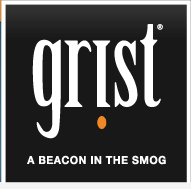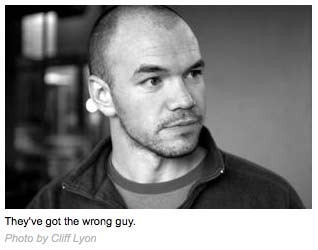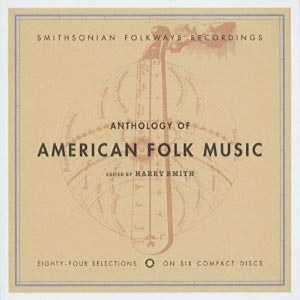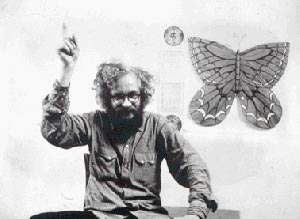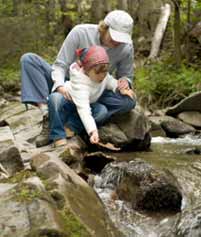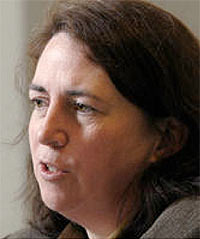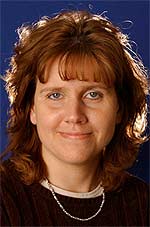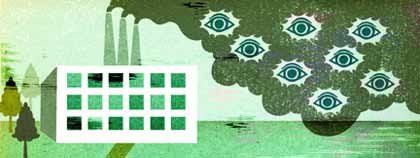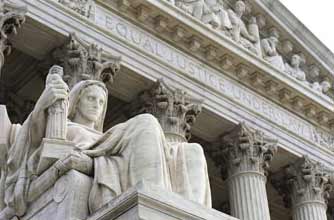Contains the keyword legal
The Government Accountability Project’s mission is to promote corporate and government accountability by protecting whistleblowers, advancing occupational free speech, and empowering citizen activists...
...Founded in 1977, GAP is the nation’s leading whistleblower protection and advocacy organization. Located in Washington, D.C., GAP is a nonpartisan, public interest group. In addition to focusing on whistleblower support in our stated program areas, we lead campaigns to enact whistleblower protection laws both domestically and internationally. GAP also conducts an accredited legal clinic for law students, and offers an internship program year-round.
See: Halliburton's Interests Assisted by White House - Los Angeles Times.
See: Daniel Ellsberg's The Pentagon Papers | Wikipedia | The Most Dangerous Man in America (film)
See: Michael Mann. The Insider (1999). Based on a story about Jeffrey Wigand adapted from Marie Brenner, May 1996, Vanity Fair, “The Man Who Knew Too Much”.
See: Goldman Environmental Prize Winners (2001) Jane Akre and Steve Wilson.
See: Alfed and John Donovan. 2010-10-27. "Sadistic sacking of a Royal Dutch Shell whistleblower". Royal Dutch Shell PLC.com
See: Rick Piltz. Climate Science Watch.
See: Julian Assange. Wikileaks.
See: Moynihan Commission on Government Secrecy (1997) | Wikipedia
See: Massimo Calabresi. Dec. 2, 2010. Time. "WikiLeaks' War on Secrecy: Truth's Consequences."
More damaging, perhaps, is that a fundamental mistrust of government is a natural outgrowth of secrecy inflation. As the number of secrets expanded in the 1990s, Moynihan observed in his 1997 report, the imperative to keep them secret diminished.
Because "almost everything was declared secret, not everything remained secret and there were no sanctions for disclosure," Moynihan wrote. And the more secrets leak, the worse it is for government credibility: either they are important and the sanctions are too minimal, or they are unimportant and the public believes there's no point in keeping secrets at all.
"When trusted insiders no longer have faith in the judgment of government regarding secrets, then they start to substitute their own judgment," says William J. Bosanko, head of the Information Security Oversight Office at the National Archives, which oversees what gets classified. "And that's a big problem." (See TIME's video "WikiLeaks Founder on History's Top Leaks.")
See also:
Moynihan, Daniel Patrick. Secrecy: the American experience. Yale University Press, 1999.
American Electric Power v. Connecticut, argued earlier this week, spurs debate over the role of the courts in addressing climate change.
The Court heard oral argument in American Electric Power v. Connecticut on Tuesday. The case raises questions about the role of the federal courts in addressing climate change–a subject that has interested academics as well. Professors David Markell and J.B. Ruhl address the issue empirically by reviewing every climate change case brought through December 31, 2009, to determine whether courts are serving as “battlefields” in the “climate fights.”
A forthcoming article in the Yale Law Journal by Benjamin Ewing and Douglas Kysar argues that climate change litigation illustrates how tort law can prod political actors to address social problems. And John Wood’s article in the Environmental Law Reporter runs through the arguments regarding displacement of public nuisance claims in the context of climate change. All three articles contend that climate change litigation raises important questions about the relationship between the judiciary and the political branches of government. We’ll soon learn the Court’s views on these questions as well.
See: SCOTUSblog | American Electric Power Co., Inc. v. Connecticut.
See: Markell, D., and J. B. Ruhl. “An Empirical Survey of Climate Change Litigation in the United States.” Envtl. L. Rep. News & Analysis 40 (2010): 10–644. Print.
See: Ewing, B., and D. A Kysar. “Climate Change, Courts, and the Common Law.” Print.
See: Wood, John. "Easier Said than Done: Displacing Public Nuisance when States Sue for Climate Change". (February 17, 2011). Environmental Law Reporter, Forthcoming. Available at SSRN: http://ssrn.com/abstract=1763359
Let's consider for a moment the targets the federal government chooses to make an example of.
So far, no bankers have been charged, despite the unmitigated greed that nearly brought the world economy down. No coal or oil execs have been charged, despite fouling the entire atmosphere and putting civilization as we know it at risk.
But engage in creative protest that mildly disrupts the efficient sell-off of our landscape to oil and gas barons? As Tim DeChristopher found out on Thursday, that'll get you not just a week in court, but potentially a long stretch in the pen...
Bill McKibben
Bill McKibben is the author of a dozen books on the environment, a scholar in residence at Middlebury College, and founder of 350.org. He also serves on Grist’s board of directors.
See: Tim DeChristopher | Bidder70.
See: Gas Drillers Plead Guilty to Felony Dumping Violations
See: Student Disrupts Government Auction of 150,000 Acres Of Wilderness For Oil & Gas Drilling.
See: The Need for Mass Mobilizations
See also: Video - 350.org: Because the world needs to know.
See: Amy Goodman and Juan Gonzalez. "Environmentalist Tim DeChristopher Found Guilty of Sabotaging Oil and Gas Auction; Faces up to 10 Years in Jail." Democracy Now!. March 4, 2011.
Photo by Alex Wong | Getty Images. See source here.
Amicus Curiae
Faith Based organizations offer information relevant to the Supreme Court deliberation on the matter of Connecticut vs. American Electric Power. 2011-03-18.
Amici curiae are fourteen faith-based organizations that are active participants in the ongoing attempt to respond to global climate change and have a strong interest in developing limits on greenhouse gases, which are the primary cause of global climate change.
Amici represent a broad spectrum of Catholic, Protestant, and Jewish communities. Although they differ on many matters of faith and policy, they are united in their concern about threats to the environment. They believe that human beings are stewards of God’s Creation and that humans have a moral obligation to prevent and mitigate harm to the planet, to our fellow humans, and to all of God’s creatures.
An amicus curiae (also spelled amicus curiæ; plural amici curiae) is someone, not a party to a case, who volunteers to offer information to assist a court in deciding a matter before it. The information provided may be a legal opinion in the form of a brief (which is called an amicus brief when offered by an amicus curiae), a testimony that has not been solicited by any of the parties, or a learned treatise on a matter that bears on the case. The decision on whether to admit the information lies at the discretion of the court. The phrase amicus curiae is legal Latin and literally means "friend of the court".
See: Gas Drilling Discussion (Suggested Agenda for) : Biblical and Theological Considerations
I attended the Energy Conference 3/31 - 4/2/2011.
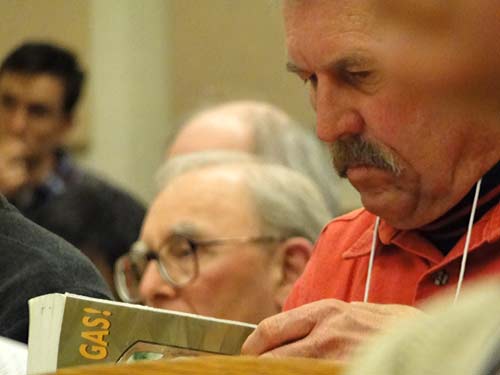
Getting serious about natural gas at the 2011 Cornell Energy Conference.
Photo by Neil Zusman.
See: Cornell University Law School - 2011 Energy Conference
First posted the photographs on 4/8 and liked how it played against Dylan and the Dead (1989) "All Along the Watchtower", but copyrights... I couldn't use Dylan and the Dead on YouTube- rock it Google.
But now I think the ballads about John Henry resonate for me - the classic man against machine tale, and I think that this conference was about that and more (mechanical, chemical). It needs a ballad. Sort of like the one about digging a tunnel for the railroad...but more about the one in progress, digging for the truth. The music is from the great Anthology of American Music. Vol. 2. (Neil Zusman, 2011-04-19).
“John Hardy” stands right next to “John Henry” as one of the most popular “figures” in the folk song tradition. (In the Anthology too, they are next to each other). In fact, many people combined the two songs and many scholars confused the two characters as Alan Lomax once said. Both were black railroad workers but their story is quite different.
The historical John Hardy killed a man during a crap game and was hanged for his crime. Before his execution he wanted to make peace with God so they sent a preacher and went to the river to baptise him. On the scaffold he claimed his repentance for his crime and probably sang some verses that would be included in the ballad that bore his name.
Harry Smith, ed. Anthology of American Music. Vol. 2. Smithsonian Folkways Recordings. 1997. "The Williamson Brothers & Curry: Gonna Die With My Hammer in My Hand".; "The Carter Family: John Hardy Was a Desperate Little Man."
Steel-drivin' men like John Henry used large hammers and stakes to pound holes into the rock, which were then filled with explosives that would blast a cavity deeper and deeper into the mountain. In the folk ballads, the central event took place under such conditions.
Eager to reduce costs and speed up progress, some tunnel engineers were using steam drills to power their way into the rock. According to some accounts, on hearing of the machine, John Henry challenged the steam drill to a contest. He won, but died of exhaustion, his life cut short by his own superhuman effort.
Carlene Hempel, Deb Procopio, Dan Shaver, Beth Novak. John Henry The Steel Driving Man. Electronic Resource. Accessed 2011-04-19.
Discover this great Anthology of American Folk Music by Harry Smith here and an even more amazing resource exploring it:
Gadaya. The Old Weird America. "Gonna Die with a Hammer in my Hand." Electronic Resource. Accessed 2011-04-19.
See: Congress Launches Investigation Into Gas Drilling Practices
Special Community Forum:
Thursday, March 31, Friday, April 1, Saturday, April 2, 2011.
Cornell Law School | Free Admission
Natural gas drilling using hydraulic fracturing ("hydrofracking") may be poised to begin in Upstate New York.
...This heated issue is part of the larger state, national, and international energy picture. The conference will use natural gas drilling as a lens to explore energy policy, the global energy market, and the integral role the law can and must play in creating energy security and ensuring a sustainable future.
...The conference will explore, among other topics, the legal issues associated with natural gas drilling and energy policy, different scientific perspectives on how clean and sustainable natural gas is, alternative clean energy sources, and the potential risks and benefits of shale gas development in Upstate New York.
PLEASE NOTE: Seating is limited at most panels, and registration is first-come, first-served. Registrants not seated in the amphitheater where the panel is taking place will be seated in an adjacent amphitheater where the panel will be broadcast live via simulcast. Contact Ben Tettlebaum, bwt32@cornell.edu, with questions or concerns.
Insights and Commentary on Environmental and Energy Issues Worldwide.
Greenberg Traurig, LLP is an international, multidisciplinary law firm with approximately 1800 attorneys and governmental affairs professionals in 32 locations across the United States and in Europe and Asia. The firm was selected as the 2007 USA Law Firm of the Year by Chambers and Partners.
See: David Mandelbaum. December 12, 2010. "Marcellus Shale Update: NY Moratorium Bill Vetoed, NY Executive Order, DRBC Draft Regs, and DRBC Hearing Curtailed."
See: Robert Charrow and Laura Klaus of GT Washington D.C. and David Mandelbaum of GT Philadelphia. Feb 4, 2011. "AEP v. Connecticut: Climate Change as a Public Nuisance".
EIP combines research, reporting, and media outreach to spotlight illegal pollution, expose political intimidation of enforcement staff, and encourage federal and state agencies to take enforcement action to stop these practices. EIP’s work has been cited in Congressional hearings and debates, in reports by the US General Accountability Office, and in frequent news articles.
...no other organization is so sharply focused on the vigilant enforcement of environmental laws.
See: Gasland - The Debate
Terry Mutchler, executive director of the state’s Office of Open Records.
Jennifer Learn-Andes
Luzerne County Reporter
The public should have access to the inner workings of Luzerne County home rule subcommittees, say three experts on the state’s open meeting law.
Unwarranted closed-door meetings “fracture public trust,” said Terry Mutchler, executive director of the state’s Office of Open Records.
...“If they’ve opened the committee meetings to the public, it’s a natural follow that the subcommittee meetings be open as well,” Mutchler said, noting that her office has no legal jurisdiction over alleged violations of the Sunshine Act governing open meetings.
Melissa Melewsky, media law counsel with the Pennsylvania Newspaper Association, said the Sunshine Act applies to committees of an agency that render advice, which would include the subcommittees.
“I think the language of the law is pretty clear. I think members of the public who are seeking public access are very legitimate in doing so. I think they have a strong argument,” she said.
Plaintiffs in Connecticut v. American Electric Power allege that six utilities' emissions are a public nuisance.
U.S. Supreme Court Monthly Argument Calendar. Tuesday, April 19, 2011. 10-174. AMERICAN ELECTRIC POWER CO. V. CONNECTICUT.
See: SCOTUS (Supreme Court of the United States) Blog.
In the seemingly endless climate change debate, the regulation of greenhouse gases (GHGs) is a contentious issue among scientists, advocacy groups, lawmakers and businesses. Opinions are strong and varied as to how GHG emissions affect the environment and to what extent they should be controlled.
In 2004, a group comprising eight states, New York City and three non-profits sued six GHG-emitting electric power corporations—American Electric Power Company, American Electric Power Service Corporation, Cinergy Corporation, Southern Company, Tennessee Valley Authority and XCEL Energy—for allegedly contributing to global warming. The plaintiffs in Connecticut v. American Electric Power claimed the utilities’ carbon dioxide (CO2) emissions were a public nuisance causing an array of environmental and personal injuries, including smog-induced respiratory problems; deaths related to prolonged heat waves; property-damaging floods; a decrease in mountain snowpack, a key water source for California; beach erosion from rising sea levels; and loss of biodiversity.
Arguing the utilities’ CO2 emissions constitute 10 percent of the U.S.’s total CO2 emissions, the plaintiffs sought injunctive relief that would hold the defendants jointly and severally liable for causing a public nuisance, cap the utilities’ emissions and require them to reduce emissions by a certain percentage annually for at least 10 years.
A trial court dismissed Connecticut v. AEP, saying it presented political questions that "are not the proper domain of judges" and that the "scope and magnitude of the relief Plaintiffs seek reveals the transcendently legislative nature of this litigation."
But on appeal, the 2nd Circuit allowed the plaintiffs’ nuisance claims to proceed. When the appeals court denied the defendants’ petition for en banc review, the utilities filed a petition for certiorari, which the Supreme Court granted on Dec. 6, 2010.
"This case had to come to the high court," says Patrick Raher, a partner in Hogan Lovells’ environmental group. The Supreme Court must make it clear that the legal system has no business creating CO2 policies, he says.
See: New climate change case headed to Supreme Court. AP. April 18, 2011.
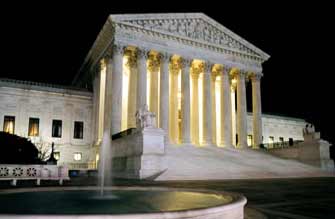 Proceedings and Orders | American Electric Power Company Inc., et al., Petitioners v. Connecticut, et al. August 4, 2010.
Proceedings and Orders | American Electric Power Company Inc., et al., Petitioners v. Connecticut, et al. August 4, 2010.
The Obama administration, in a recently filed brief in the Connecticut case, American Electric Power v. Connecticut, is arguing that it may not be prudent for the high court to allow these types of cases to go forward. (Coyle, 2010)
"If the plaintiffs can tag utilities for CO2 liability, the damages are potentially staggering," says McCarter & English Partner Wylie Donald, co-chair of the firm’s Climate Change and Renewable Energy Practice.
Allen Kacenjar, a principal in Squire Sanders’ Global Climate Change Practice, says Connecticut v. AEP has serious implications for companies with GHG-emitting facilities. "What’s at stake is whether the federal courts will basically become a clearinghouse for climate change tort actions," he says.
The Supreme Court will hear arguments on April 19, and justices will then attempt to answer the case’s crucial question: Can courts regulate GHG emissions in the absence of comprehensive climate change legislation?
See: Google Scholar Search on this case.
In 2009, the U.S. Court of Appeals for the Second Circuit upheld the states’ right to bring this lawsuit. The power companies appealed the case to the Supreme Court, which will hear arguments on April 19, and is expected to decide the case by July.
Attorney General Schneiderman is vigorously defending the appeals court’s ruling to protect New Yorkers from the harms caused by climate change. These harms include causing asthma and other respiratory diseases, eroding beaches and inundating properties on Long Island, increasing heat-related deaths in New York City, lowering water levels in the Great Lakes that harm the shipping industry, and killing off hardwood forests in the Adirondacks.
See: New York State Office of the Attorney General. "A.G. Schneiderman Urges U.S. Supreme Court to Uphold States' Rights to Sue Carbon Dioxide Polluters." New York State Office of the Attorney General. March 14, 2011.
See: A copy of the Attorney General's Brief 10-174. Filed March 2011.
See: New York State Office of the Attorney General: Media Center. "Schneiderman to Feds: Commit to Study Safety Impacts of "Fracking" in Delaware River Basin in 30 days or I'll Sue." 2011-04-18.
See also: Pew Center on Global Climate Change. “Massachusetts et al. v. EPA et al..” Pew Center on Global Climate Change 2 Apr. 2007. Web. 4 Apr. 2011.
Supreme Court Decision in Massachusetts et al vs. Environmental Protection Agency
On April 2, 2007 the Supreme Court released its ruling in the case of the state of Massachusetts vs. the Environmental Protection Agency. Massachusetts and eleven other states, along with several local governments and non-governmental organizations (petitioners), sued the EPA for not regulating the emissions of four greenhouse gases, including carbon dioxide (CO2), from the transportation sector. The petitioners claimed that human-influenced global climate change was causing adverse effects, such as sea-level rise, to the state of Massachusetts. In a 5-4 decision, the court ruled in favor of Massachusetts et al, finding that EPA has the authority to regulate CO2 and other greenhouse gases.
The decision was written by Justice Stevens and was signed by Justices Kennedy, Souter, Bader Ginsburg, and Breyer. Chief Justice Roberts and Justices Alito, Scalia, and Thomas dissented.
See: Coyle, Marcia. “High court could melt climate-change cases.” The National Law Journal | Law.com 13 Sept. 2010. Web. 13 Apr. 2011.
See also: LaMonica, Martin. "Supreme Court rules EPA can regulate greenhouse gases". 2007-04-02. CNET News. Web. 11 Apr. 2011.
See also: Broder, John M. "Keep Courts Out of Climate Policy, G.O.P. Lawmakers Say." 2011-02-08. NYT Green. Web. 11 Apr. 2011.








